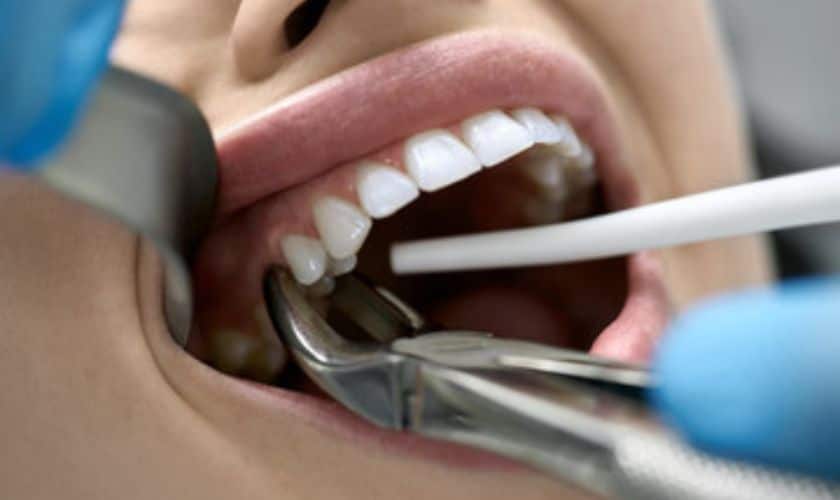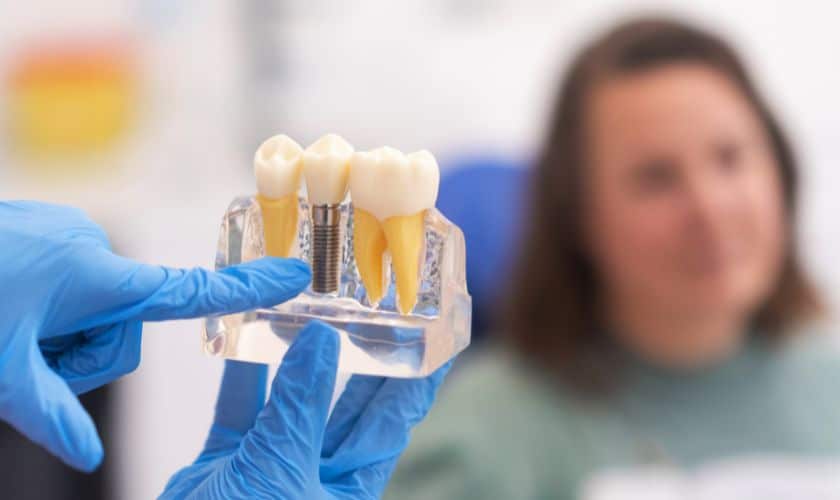When it comes to tooth extractions, a lot of confusion and worry can arise. To help ease your mind, we’ve put together this complete guide to tooth extractions. Here you’ll find everything about tooth extractions and why they may be necessary. Read on to learn about tooth extraction procedures, the different types of tooth extractions, and more!
Tooth extraction is the surgical removal of a tooth or teeth from the mouth. Having a tooth extracted isn’t something anyone looks forward to, but sometimes it is required to maintain oral health. There are two types of tooth extraction namely: simple and surgical. Simple tooth extraction refers to pulling the tooth that can be seen in the mouth, while surgical tooth extraction refers to a tooth broken or impacted deep below the gum line.
Types of Tooth Extractions
Simple tooth extractions are straightforward procedures that require minimal effort and preparation. This type of tooth extraction is typically reserved for teeth that are visible and easily accessible. Surgical tooth extractions involve incision into the gums to access the tooth root and remove the tooth from its socket. The dentist will use forceps to remove the tooth from its socket. Surgical tooth extraction may be necessary if a tooth cannot be removed using forceps.
Pain Management and Recovery
After tooth extraction, pain management is usually the biggest concern for most patients. Your dentist will prescribe medication to help manage any discomfort or swelling you may experience after your tooth has been extracted. Additionally, following your dentist’s instructions for at-home care is essential to promote proper healing and reduce the risk of infection. This typically involves rest, avoiding strenuous activity, eating soft foods, rinsing gently with salt water, and applying cold compresses to the area as needed. Most tooth extractions heal completely within 7-10 days.
Costs of Tooth Extraction Procedures
The cost of tooth extraction procedures can vary depending on various factors, such as the type of tooth extraction, tooth location, and system complexity. Simple tooth extractions are typically more affordable than surgical tooth extractions because they require less time and effort. Additionally, insurance may help cover part or all costs associated with tooth extraction procedures.
Tooth extractions can be an intimidating experience, but with the proper guidance from the expert, you can ensure that your tooth extraction process goes smoothly. This guide has outlined everything you need to know about tooth extractions—from types of tooth extractions to pain management and recovery—so that you can feel informed and prepared if a tooth extraction is necessary for your oral health.
FAQs:
Q: Is tooth extraction always necessary?
A: No, tooth extraction is not always necessary. Depending on the severity of tooth decay or damage, it may be possible to restore a tooth instead of removing it.
Q: How do I know if I need a tooth extraction?
A: If your dentist has determined that tooth restoration is not an option and that your tooth needs to be removed to maintain oral health, you will likely need a tooth extraction procedure.
Q: Is tooth extraction painful?
A: Tooth extractions are usually performed with local anesthesia, which helps minimize or eliminate discomfort during the procedure. However, some pain or tenderness after the procedure is normal and can be managed with over-the-counter medication.





